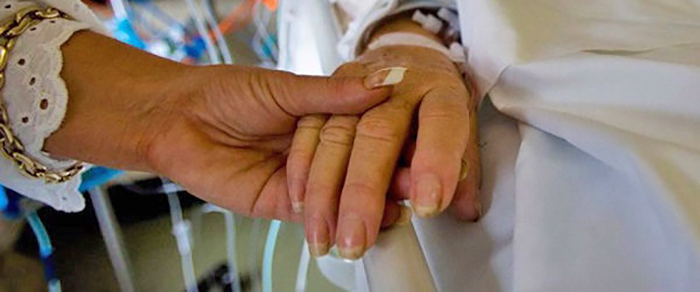
It’s common, particularly among religious commentators, to describe the human heart as small, narrow, and petty: How small-hearted and petty we are! But God did not put us on earth with small, narrow, and petty hearts. The opposite is true. God puts us into this world with huge hearts as deep as the Grand Canyon. When not closed off by fear, wound, and paranoia, the human heart is the antithesis of pettiness. As Augustine describes it, the human heart is not fulfilled by anything less than infinity itself. There’s nothing small about the human heart. Fr. Ron Rolheiser writes that the problem that Jesus speaks of today regarding the heart is not its size or natural dynamics but what the heart tends to do when it is wounded, fearful, disrespected, paranoid, or self-deluded by greed and selfishness. The early Church Fathers taught that the heart has two souls. Each person has a small, petty heart, a pusilla anima. We operate out of this heart when we are not at our best. This is the heart within which we feel our wounds and our distance from others. This is the heart within which we are chronically irritated and angry, the heart within which we feel the unfairness of life. This is the heart most often described by religious thinkers when they represent human nature as small and petty. But the Church Fathers taught that inside us was another heart, a magna anima, a huge, deep, big, generous, and noble heart. This is the heart we operate out of when we are at our best. This is the heart within which we feel empathy and compassion. This is the heart within which we are enflamed with noble ideals. This is the heart where we inchoately feel God’s presence in faith and hope and can move out to others in charity and forgiveness. Inside each of us, sadly often buried under suffocating wounds that keep us far from the surface, lies the heart of a saint, bursting to get out. Thus, on any given day and at any given moment, we can feel like Mother Teresa or a bitter terrorist. We can feel ready to give our lives in martyrdom, or we can feel ready to welcome the sensation of sin. We can feel like the noble Don Quixote, enflamed with idealism, or like a despairing cynic, content to settle for whatever short-range compensation and pleasure life can give rather than believing in deeper, more life-giving possibilities for ourselves and others. Everything depends upon which heart we are connected to at a given moment. When fanned to full flame, our virtues leave no room inside us for pettiness and small-heartedness. Fanning what’s highest in us eventually moves us more and more towards living out of our big hearts rather than petty hearts. Nowhere is this more important than in how we name both the size and the struggles of the human heart. We are not petty souls who occasionally do noble things. We are rather noble souls who, sadly, occasionally do petty things.
